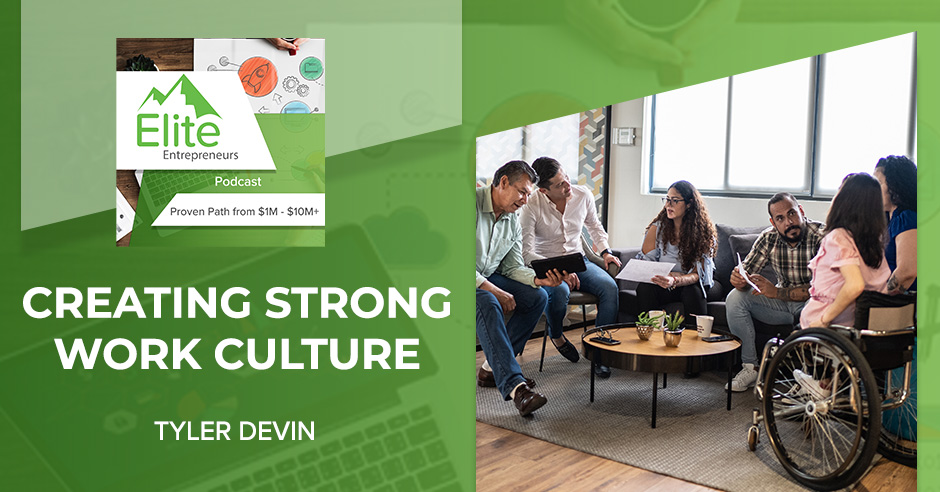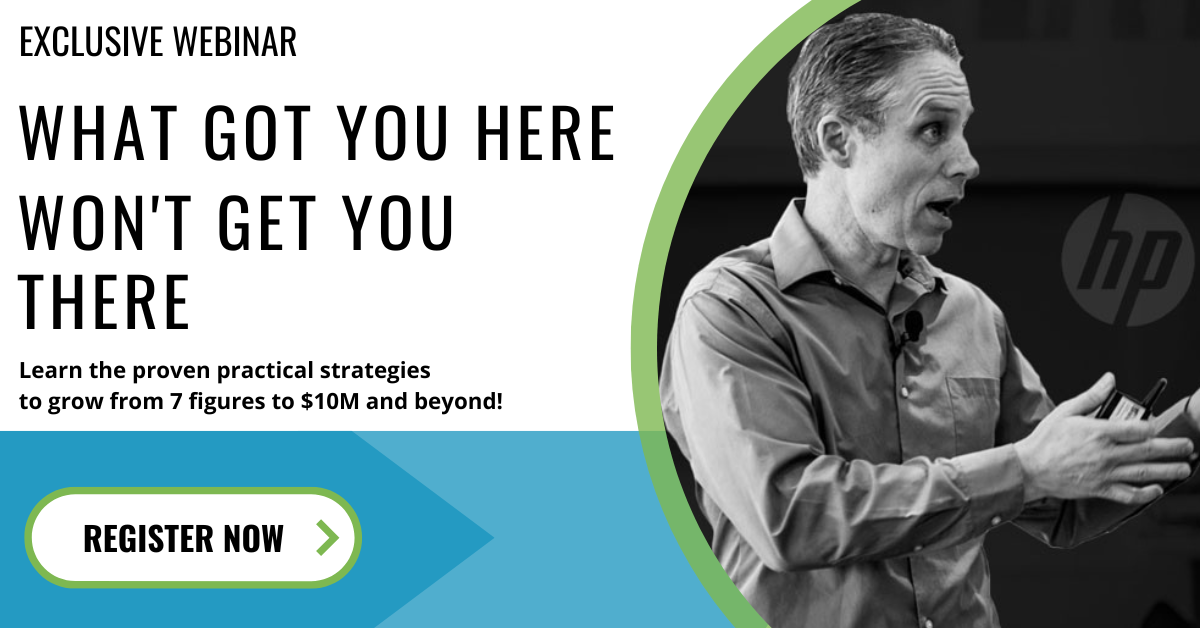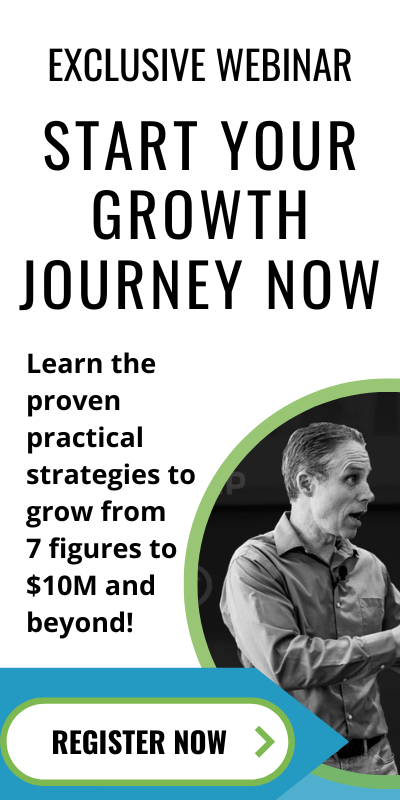Episode 121: Creating Strong Work Culture, With Tyler Devin
After a horrific car accident in 2005, Tyler was motivated to forge his own path in life and find a way to create wealth. Years later, Tyler owns two online lead generation companies generating eight figures in revenue annually.
Tyler has been in the industry for over 15 years and has a wide range of experience. From sending millions of emails a day to running ads on Google, Facebook, and other display placements to owning/managing offers.
Even though Tyler has admittedly an extremely limited technical skill set, he excels by developing strategy, creating relationships, uncovering opportunities, and building/managing teams that execute on his vision.
Tyler also co-hosts a podcast called 7 Figure Entrepreneur. Between his own experience and that of other industry leaders that get interviewed, he takes his listeners behind the scenes of how to successfully build and grow a million-dollar online business.
What You Will Learn in this episode:
- How Tyler has built a business that generated nearly 30 million
- Why you need to change your business operations every time your business doubles
- Why you shouldn’t hire people that you like
- What is the skill vs will matrix
- What you should hire B type employees
- What is the downside of having a fully remote company
- How to foster a great work culture with a fully remote team
- When should you outsource work or bring in external talent
Resources:
- Website: https://www.7figureentp.com/
- YouTube: https://www.youtube.com/channel/UCnSnW91tSrc5sB_krEUFQqg
- Facebook: https://www.facebook.com/7figureentp/
- Instagram: https://www.instagram.com/7figureentp/
Additional Resources:
- Email: info@GrowWithElite.com
- Website: https://growwithelite.com/
—
Listen to the podcast here
As always, I’ve got another great guest with us. His name is Tyler Devin. Tyler, welcome to the show. Thank you very much for joining us.
I appreciate it. It’s good to be on.
I want to tell everybody who you are. Tyler is the Founder of a business called Blue Modo Media. All of you know that we love to bring in founders and business owners who have been through that seven-figure growth journey. Tyler is no exception. Tyler’s not only grown through that seven-figure growth journey but he was sharing with me that they’re beyond that $20 million mark and may even be approaching that $30 million mark. Congratulations on the job well done there, Tyler.
Thank you. I appreciate it.
Tell us a little bit about Blue Modo Media because not only are we going to learn lessons from your seven-figure growth journey but you serve businesses like the ones in our audience. Tell us about Blue Modo Media, and then we will get into some of the lessons.
What we do is generate leads for companies. One of our biggest markets is we provide leads for lawyers. You can’t drive more than a few miles in Florida without seeing at least three signs for lawyers advertising, “If you’ve been in an accident or if you’re hurt, call 411PAIN,” or whatever it is. What we will do is generate leads for them except only online-based. We will advertise on your social channels like Facebook and TikTok. We do a lot on Google and generate as many leads as we can per day possible for these guys. We get paid on a lead-by-lead basis. That way, they’re only getting paid for people that are able to match all the conditions they have, not just random people signing up to their website.
You’re helping them find warmer leads than random traffic. You’ve been in business for many years. You’re providing leads for these businesses and doing well. Congrats on that. Let’s talk about some of your lessons along the way, which will be super relevant for our audiences. You passed that $1 million mark. I know from working with hundreds of business owners that there’s a new thing that happens when you move from doer or that superhuman founder-entrepreneur who was doing all the stuff to, “I’ve built a team of people. We’re growing this thing. I have to become a leader. I have to figure out how to build a business.” It’s a different thing. Why don’t you talk to us a little bit about your experience in making that transition?
I’ve had quite a few of them. One thing a mentor told me very early on is, “Every time your business doubles, the way you operate it has to change, or you’re going to peak and trough.” I’ve found that to be true. I’m in a place now where I have to let go of more. The more I do, the more we grow. This was something I wish I would have noticed way back then because it’s amazing when you are smaller how big of a bottleneck you become in everything. You want to check everyone’s work to make sure it’s 100%. You’re micromanaging people. You’re too attached. To consistently achieve growth, that’s going to hold you back. That’s going to keep you small.
In other words, if you’ve built a $1 million business, you can either run that $1 million business exceptionally or figure out how to get out of the way and build some new things so that you can grow to $2 million or $3 million. You have to do it again to grow to $10 million. What are some things you’ve learned to do to make sure you don’t get sucked into holding onto something for too long?
One of the biggest things I always tell entrepreneurs is it’s so important to know yourself and know what your strengths are because that’s where you’re going to win at the end of the day. Not everything you’re doing is your strength. What I tried to do early on was identify people and their strengths for my weaknesses, and vice versa so that we are complementary to each other.

Work Culture: It is so important to know yourself and your strengths in order to win.
Initially, I did a poor job of that. I hired people that I liked. The downside of that was those people were exactly like me. Maybe they’re great at networking, getting out there, and doing all that stuff but when it came down to logistically doing the work and running operations, we had a huge gap because we didn’t have the hermit. We didn’t have the guy that wanted to stay at home behind the screen. Everyone wanted to go out and have a good time at the networking events.
Figuring that out was huge. It’s the whole world of figuring out hiring and what to even look for in people. At what level do you need someone who’s an expert? At what level do you need someone with the drive? If you find people, how do you test them? I had another coach of mine give me this hiring matrix one time. This has been one of the most useful tools I have. It’s quick and easy. We might have talked about this but it’s the skill versus will matrix. Did we talk about that?
We didn’t but I am familiar with that. Tell us. We love practical tools here. Talk about that.
This is a great one. It’s very simple. There are four types of people. There are A-players, B-players, C-players, and D-players. When you are smaller, you probably can’t afford A-players because A-players are going to be very expensive. They’re going to be good at what they do but they’re going to be expensive. An A-player has a high level of skill and a high level of will. If you think of it like a graph, one column is your player type. There are players A, B, C, and D. There’s a skill column and a will column.
An A-player has high skill and high will. This person is someone who is very experienced and is an expert in what they do. Their level of will or their determination to get it done is high. It’s a great person to hire but it’s going to be expensive when you’re smaller. I had to find B-players or people who had less experience but their level of will was high. They’re trainable. They’re hungry for success. They want to do well at this. Those people are cheaper because they don’t have the same experience level. Over time, they can stay with you, grow, and become those experts but you will get them at a better rate. It’s more affordable for a business owner.
The next one was a C-player, which has high skill and low will. Maybe they’re good at what they do but they’re not that driven. They’re lazy. The bottom line is you don’t want these people. A D-player has low skill and low will, which you don’t want. Ideally, you want to stay among the people who have a high will and high drive to succeed because that’s what’s going to drive your business forward.
You don’t want D-players on your team. What you want are individuals with high will and high drive to succeed. Click To TweetI’m curious because I’m a culture geek. You got this high will and high skill thing. You get that worked out. Did you find that you were also layering on a lens around culture? Are they going to fit on the team? Was that an evolution for you? Was that not part of the deal?
I’ll be transparent on this. This may not be a popular thing to say. It wasn’t initially intentional but initially, we hired just guys. It started with me and another guy, and then I hired another guy I knew. Eventually, we had this group of 5 or 6 guys. We would do things like golfing. We had a great culture. In a lot of ways, it was almost like a little family because we did everything together. Once a year, we would travel. Eventually, we found amazing women to hire on the team. We brought them on.
If anything, they brought such a great dynamic. Our operations guy at one point said to me, “Do you think the family dynamic that we have is going to change?” We’re guys. We talk about sports and stuff like that. Bringing the women on the team brought an awesome new dynamic. It made us so much more robust. It paid off. Culture is important.
We’re a remote company. Everyone works from home. The downside of that is so much gets lost in translation when you’re typing online every day. You don’t hear tone and speed. You miss so much communication. That has caused problems before. People have gotten offended over things that were not supposed to be intended that way very easily.
One thing I’ve always tried to make a point of is bringing people together and spending time together. That’s paid off because anytime we have had a fallout, it has been a situation where I haven’t necessarily had to fix the relationship because the relationship is already there. All I had to do is remind them of it, “No one is getting fired here but you two have to work together. You are on the same team. You have to figure this out.”
They have come around because they have that relationship. They care about each other genuinely. We’re both on the same team. We all have the same goals. Overall, it worked out but if you didn’t have that culture, and you didn’t have that type of relationship, especially for a remote team, it would be so easy to lose good people along the way.
A lot more businesses because of COVID have more remote or virtual teams. It sounds like a best practice for you has been to get them together at least periodically. What does that look like? Is that an annual get-together? Do you get together quarterly? Do you do it one team at a time or the whole company? What are some of the things you do to bring people together?
We have multiple divisions and stuff. It’s harder. Before, we would bring everyone somewhere. Some of them didn’t even have a passport before. We would do a Mexico trip for four days or a Canada trip or even get out of the country for a few days. We would still work but we would rent a big house, all get together, work together for a few days, and then all go home but now that the team has grown, especially with travel restrictions with COVID, it hasn’t been as possible.
What I’ve been doing is making the trip and meeting with the team in Vancouver. We have a get-together in Miami. We have a few people that were in Canada before but now they’re in Mexico. We’re flying them up from Mexico. I’m going down to Miami. We have the team in Miami as well. We’re all getting together for the weekend there. It’s turned into pocket events among the smaller divisions but still making a point of getting together. Having that face time is so valuable. One thing that gets lost, especially with digital companies where everyone is still working from home, is the personal touch. The personal touch means so much.

Work Culture: When everyone is working from home, one thing that gets lost is the personal touch, and it means so much in team building.
That’s wise. I hope that everybody is latching onto this concept that you’re saying. Through relationship building, you can smooth a lot of the unintended weirdness that happens in communication. Nobody intended to offend somebody else but we’re running so fast and using Slack, email, or text. There’s no body language or tone. There can be offenses. You’re intentionally investing in people, spending time together, and building some relationships that will carry us through some of those nuances or things that are unavoidable that happen.
Especially with the growth that we have had, we try to make a policy of hiring within and promoting. There are pros and cons. The pro is everyone has a career path. They have somewhere they’re going to go. Some people can do the same thing for a long time, and they don’t want to proceed but generally, not B-players. They have a high sense of will. They want to perform. If they cap out with you, they might go somewhere else. We tried to make internal growth patterns or opportunities for them. We try to promote within but it gets hard because what got you here won’t get you there.
The growth we have been going through has been crazy. One thing I’ve always intuitively believed was a very simple concept. If people like you, they will go out of their way to help you. They will move mountains if they can but if people hate you, they will go out of their way to hurt you. Being likable is very important and having good relationships but the cornerstone of that whole thing is having strong relationships with the people you have internally and also with the team that is external to you.
If people like you, they will move mountains to help you. But if they hate you, they will go out of their way to hurt you. Click To TweetYou mentioned the pros of promoting or hiring from within. Let’s talk about why you might need to bring in some outside talent from time to time given that the current team hasn’t been where you’re going. Sometimes we need some help from outside, and that may be a little more resource-intensive. It might cost a little bit more to bring in somebody from the outside who’s been where we’re trying to go.
What has that been like for your team, especially on the leadership team? If you bring in a proven leader from the outside, how have you successfully brought that person in, integrated them into the team, and gotten the benefit of their outside experience while preserving this great thing you’ve created internally?
Honestly, I would almost chop a lot of it up to luck in a lot of respects. We brought two people from outside. Some of the gaps we have were mostly on the tech side. We brought in a lot more technology talent, higher-level coders, and stuff like that. They had such great attitudes that they have been able to interweave into the team seamlessly a lot easier than I thought. You think about the stereotype you have for people who are more tech-savvy. Generally, they want to keep to themselves. They’re fairly quiet like the hermit but they have been outgoing. They have been excited.
We have a Skype chat that’s nonsense. If you scroll through that, you will see things from memes of Elvis to whatever. It’s all on there. We explain to people, “We want to have fun every day because if it’s not fun, you’re not going to be that motivated to do it.” All that became contagious so that when they come on, they’re exposed right away. They get caught up in it but it’s exciting that they enjoy it. It has been fun. That has helped bring them in a way that hasn’t disrupted anything.
You live in this. You swim in your business. You don’t think about what’s different. It was a Skype chat or Skype channel. Whether it’s Slack, Skype, or whatever tool, you have a thing where you have one channel that’s exclusively fun. It’s nonsense.
It’s things about our families if someone’s kid graduated. We have a guy on our team whose daughter is amazing at softball. We get to see 1 of every 5 home runs she hits. We all take part in it as a big family at the end of the day.
You do that. Are there other things and practices that you have in the business that help bring the team together or strengthen the culture and keep people aligned with where you’re going? Anything like that you could share would be great.
We do have a reward center. If you notice someone doing a killer job, we post that, and then the management team will come up with a random bonus. There’s no, “If you hit this, we give you that.” It’s like, “You’re doing a good job. We checked out your work. It’s on point. Everything is looking good. You’re contributing to the team. You’re very vocal. Here’s a little something to say thank you.” That has gone a long way.
I try to make a point of letting people know that Blue Modo is supposed to be a place for growth, not just for me but for everyone here. The more you stand up and the more you want, raise your hand and let me know because I might not see you but I want to see you. If you want more, I want more for you. We try to find ways to always encourage them, try to bring the best out of them, and make it so it’s a place they enjoy working. One thing that we have noticed is our turnover is non-existent. Either our turnover happens like we bring someone on, and they will be gone in 2 or 3 weeks. The people that do leave go fast.
Why is that? I have a hunch as to why that is but I would love for you to vocalize that.
I would have to give that more thought. I’m not sure off the top of my head.
Here’s what I think. Even if you haven’t been very super intentional about how you’re building your culture, it’s clear to me that you have one. There are some things you’re doing intentionally but you’re like, “We lucked into it. We naturally or intuitively do this stuff.” That’s cool but you have a way. If somebody enters that way, and they don’t fit with it well, it feels uncomfortable. They’re like, “This isn’t for me.” It’s strong enough that anybody who doesn’t fit is noticing it right away, “Eject button. I have to get out.”
Honestly, I love when people self-eject. I’m like, “The faster you know this isn’t for you, the better off we all will be.”
The entire team benefits if people know when to self-eject. The faster they know that something is not for them, the better off everyone will be. Click To TweetAll you have is a team full of very loyal and happy team members who like to work together. It sounds like that’s what you’ve created. How many team members are you up to now as you’ve been growing?
We’re between 25 and 30.
You’re in this 25 to 30 range. You’ve got this tremendous revenue per employee math, which is awesome.
We’re in a very scalable business model of online lead generation. Your income is capped on how much you can spend on advertising on Google and Facebook a day. The answer to that is it’s a lot. It’s a great business to be in as a whole.
As you think about where you’re going, and those 25 or 30 people turning into 50 people, what are you looking forward to? What are you trying to anticipate?
I try to take a step back and look at our biggest areas of opportunity. Our biggest area of opportunity is getting better at copywriting or bringing on copywriting experts because our ability to scale on Google, Facebook, and all these traffic platforms is immense but our copy skill isn’t the greatest. Still, we can scale. A copywriter could guess an extra 50% conversion on the front end. That’s going to do insane things to our numbers and the team we already have in place.
The other thing we’re looking at is new markets we’re trying to branch out into. I had another coach share this with me. He is like, “Take your skillset and move into a vertical that has a lot of money and can pay for it.” We’re moving into the pharmaceutical space. There’s a big disconnect in that world that we think we have identified. We have had some meetings. That overall has been confirmed. If it works out the way it is, we will do better than double. We will see how it goes.

Work Culture: Take your skillset and move into a vertical that has a lot of money that you can pay for.
It has been great to learn some of your lessons along the way. I appreciate it. If people want to learn more about Blue Modo Media, or they want to connect with you on social, how would they find out more? How would they connect?
My name on Instagram is @TylerMDevin. I’m not on Instagram often but when I do, I try to make a point of checking my messages. I don’t post or anything like that but you can find me there. Our website is BlueModoMedia.com.
I love the rocketship ride that you’re on or the growth train. I appreciate you sharing some of your thoughts with our readers.
You’re more than welcome.
Thank you for joining us. For you, readers, please rate, review, share, and do all those things to make sure that as many of the seven-figure business owners you know are benefiting from these interviews like the one I had with Tyler. We bring these so that you can keep getting very practical insights into what it will take for you to grow your seven-figure business. We look forward to seeing you next time.
Important Links
- Blue Modo Media
- @TylerMDevin – Instagram
Want to listen to more? View all episodes here >



